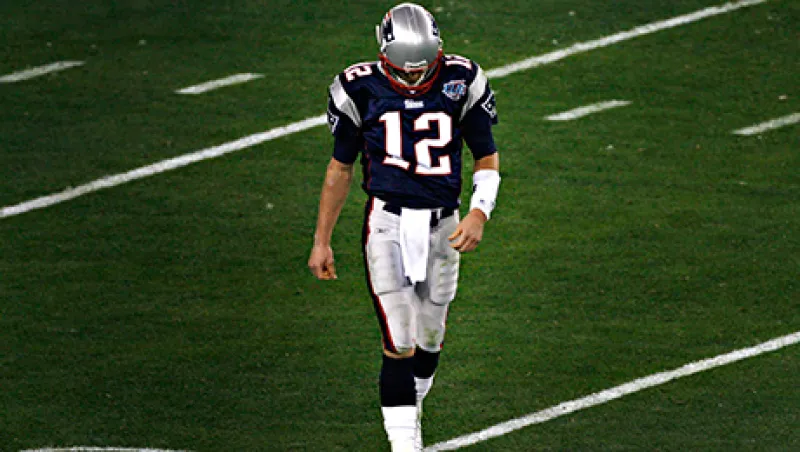The National Football League’s Deflategate scandal offered a bucketful of bad publicity for the league, with a federal court judge overturning NFL commissioner Roger Goodell’s decision to suspend New England Patriots star quarterback Tom Brady.
Last year there was another spate of bad publicity, from multiple incidents of domestic violence among NFL players, particularly against women. The topper was a video of Baltimore Ravens running back Ray Rice knocking his then-fiancée (now wife) unconscious in the elevator of a casino in Atlantic City, New Jersey. The video came out after Goodell initially decided to suspend Rice for only two games.
You might think that this controversy would make some sponsors curb their involvement with the NFL, a nonprofit organization, but that hasn’t been the case. League officials told the Wall Street Journal that sponsorship revenue should increase 15 percent this year, to $1.3 billion.
So what would it take to push sponsors away from the NFL? According to sports marketing experts, there would have to be a scandal of gargantuan proportions. Pro football by far draws the most viewers of any kind of television programming in the U.S. — and it has been the most-watched professional sport in the U.S. for some three decades running. Sponsors won’t abandon their commitments easily.
“It would have to be something that so hugely transgressed the social mores and value of the country, and then the league didn’t deal with it,” says Steve Gans, a partner at Boston law firm Prince Lobel Tye who also is a principal at Professional Soccer Advisors, an international soccer consulting agency. He notes that sponsors did express some concern after the Ray Rice incident and after the arrest of Minnesota Vikings running back Adrian Peterson in connection with allegations over beating his son. He pleaded no contest to reduced charges. But the league ultimately reacted strongly to both cases, suspending Rice and Peterson for all of last season, though both suspensions eventually were overturned.
If the league hadn’t acted vigorously on these issues, sponsors might have begun trimming their NFL connections, Gans says. In the case of Rice, “the initial response was inadequate,” he argues. “The NFL was starting to lose in the court of public opinion.”
One factor shielding the NFL from a backlash to incidents of player violence off the field is that some like the sport specifically for its roughhouse antics.
“For years there has been a wink that ‘Boys will be boys,’ which pervades all of it,” says Steve Griffith, general manager at Vizion Group, a sports marketing and public relations agency in Berwyn, Pennsylvania. “No one says it’s a game of angels,” says Andrew Zimbalist, a professor of sports economics at Smith College in Northampton, Massachusetts. “It’s a violent game, and people get hurt. It’s not as if the NFL has a lily-white reputation and now that it has a black smirch, people say it’s ugly.”
As for Deflategate, it could have resulted in the firing of Goodell or internecine strife among NFL owners, he notes. That didn’t happen, of course. “Instead it was sexy publicity for the league,” Zimbalist says. “Just about everything negative will redound in that way.” That’s why a huge scandal would be necessary to upset the applecart, Zimbalist and others say. And what might such a scandal entail?
“It would have to be something so ridiculous, like all the owners participating in a gambling ring to fix games, or every team having a guy in charge of distributing steroids in the locker room,” says John Korff, a New York sports entrepreneur who has owned the New York City Triathlon and the A&P Tennis Classic in Mahwah, New Jersey.
Zimbalist says that the concussion issue could “turn this all around.” The NFL for years argued that there is no conclusive proof that concussions suffered while playing football cause major brain damage. For its part, the NFL noted in federal court documents that it estimates nearly one third of retired players will develop long-term cognitive conditions. Now the league has addressed concussions strongly enough to silence many critics, though concern remains at the college and youth level. “A spate of doctor research reports could make a difference with popularity and sponsorships,” says Zimbalist.
Most Americans are more worried about their children receiving a concussion playing football than they are about their favorite NFL players suffering one. Given that dynamic, and the fact that the league already is addressing the issue, most analysts are skeptical it will have a big impact. “The NFL is arguably bulletproof,” Griffith says.







